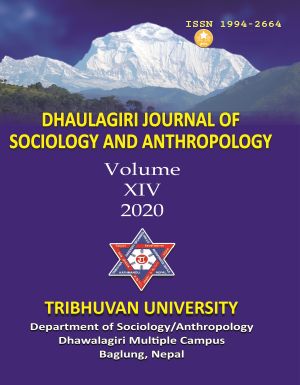Trust in Ethnography: Narrating the Difficulties, Rewards and Dilemmas of Entry, Engagement and Exit (3Es) in the Research Field
DOI:
https://doi.org/10.3126/dsaj.v14i0.28521Keywords:
engagement, native, positionality, trustAbstract
Field engagement of the researchers in ethnographic research determines the quality and the rigor of academic work. The engagement of the researcher in the field to elicit information, however, is a result of confidence and/or faith, named trust, that the researcher develops with his/her participants during the research process. Trust-building is a basic but fundamental research phenomenon that a researcher goes through in his/her fieldwork. But how to establish trust with research participants? This article is a reflection based on the product of my fieldwork and narrates my experience of the trust-building process that I had undergone in my research field. Though hailing from the same area, I had entered my ethnographic space like a university researcher rather than my native identity for different reasons. Thus in this paper, I narrate my field experiences of difficulty, reward, and the dilemma of my field journey i.e., difficulty in establishing trust while entering the research field; rewards with my shifting identity (revelation of my native identity) while engaging in the field; and my dilemma in protecting my participants' trust and their voices while exiting from the field. Out of many perspectives and approaches to conceptualize and establish trust, I take one put forth by Williamson (1993), who says trust builds mainly on repeated positive experiences, formally or informally, made over time and longstanding relations, and is built on the initial knowledge about the other.




